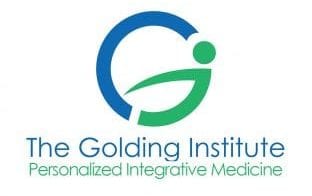
Integrative Medicine Lab Testing
The goal of this module is to organize and explain various tests that are available so as to make their use more applicable to medical education and clinical practice. There is a new standard of care emerging in medicine, and recent science in molecular medicine has challenged the fatalistic approach to the mere management of disease with the pharmaco-therapeutic approach. The predisposition model recognizes that we all inherit genetic vulnerability, but it incorporates unfolding evidence that environmental and nutritional factors interact with our genome to produce a unique phenotype and the eventual clinical outcome. In order to identify the causative determinants that must be addressed in clinical situations, an objective mechanism is required to explore those nutritional and toxicological factors that are contributing on a molecular basis to health outcomes. Accordingly, laboratory testing to evaluate biochemical, toxicological and nutritional status in individual patients is an absolute prerequisite in modern health care to adequately investigate and manage health problems, particularly in patients with complex problems.
he following lab tests will be discussed in terms of meaning of results, including actual lab results and how to interpret them:
- 2 and 16 Urinary Oestrogen Metabolites in the urine, Adrenal Hormone Profile on saliva , Amino Acid testing urine, Baseline Hormone Profiles, Baseline Plus Adrenal Hormone Profiles, CDSA (comprehensive digestive stool analysis) , Comprehensive Urine Elements Profile, Organic acid/krebs cycle investigations, Essential Fatty Acids, Female Hormone Profile, Functional Liver Detoxification Profile, Genetic Diagnostic Testing, Hair Mineral Analysis, IgG food allergy testing FAQs, IgG Food Sensitivity Profiles,Intestinal Permeability testing (lactulose/mannitol test), Melatonin Profile, Metabolic Analysis profile, MTHFR , Osteoporosis Risk Assessment NTx, Saliva vs Serum explanation, Secretory IgA testing , Iodine challenge test, Thyroid Hormone Profile , Urinary Iodine, Which Hormone Profile to use
Module learning objectives:
Learners will:
- be familiar with the functional laboratory testing done in Integrative medicine
- have a good understanding of what optimal 2:16 OH estrone ratio is in the urine
- know which nutraceuticals, foods and nutrients improve 2 hydroxylation of estrogen
- know which hormones can be tested on saliva and understand that saliva reflects tissue levels
- know the symptoms of antioxidant deficiency states and know which antioxidants are tested in the functional medicine lab
- know the functions of the various B vitamins
- understand what is meant by a comprehensive digestive stool analysis and know what can be tested with this test
- understand the functions of ALA, EPA, DHA (omega 3 fatty acids)
- know why homocysteine testing is important in Integrative Medicine
- know how to test for growth hormone levels in the functional medicine lab
- know the causes of elevated reverse t3 and decreased t3
- know the significance of IgA saliva testing
- understand phase 1 and 2 liver detoxification
